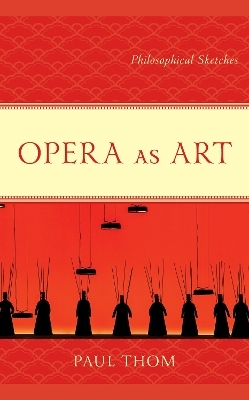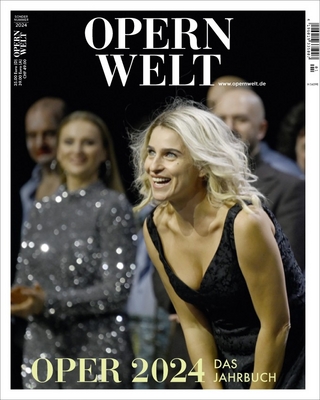
Opera as Art
Philosophical Sketches
Seiten
2022
Lexington Books/Fortress Academic (Verlag)
978-1-6669-1423-8 (ISBN)
Lexington Books/Fortress Academic (Verlag)
978-1-6669-1423-8 (ISBN)
Paul Thom argues that opera is a set of practices framed by the concepts of work, interpretation, performance, and art. His argument is that operatic works have the potential to be art, but so do operatic productions, independently of their value as interpretations of the works they stage.
In Opera as Art: Philosophical Sketches, Paul Thom argues for opera as an art, standing alongside other artforms that employ visual and sonic media to embody the great themes of human life. Thom contends that in great operatic art, the narrative and expressive content collaborate with the work's aesthetic qualities towards achieving this aim. This argument can be extended to modern operatic productions. At their best, these stagings are works of art in themselves, whether they give faithful renditions of the operas they stage and whether their aims go beyond interpretation to commentary and critique. This book is a philosophical introduction to the key practices that comprise the world of opera: the making of the work; its interpretation by directors, critics, and spectators; and the making of an operatic production. Opera has always existed in a context of philosophical ideas, and this book is written for opera-lovers who would like to learn something about that philosophical context.
In Opera as Art: Philosophical Sketches, Paul Thom argues for opera as an art, standing alongside other artforms that employ visual and sonic media to embody the great themes of human life. Thom contends that in great operatic art, the narrative and expressive content collaborate with the work's aesthetic qualities towards achieving this aim. This argument can be extended to modern operatic productions. At their best, these stagings are works of art in themselves, whether they give faithful renditions of the operas they stage and whether their aims go beyond interpretation to commentary and critique. This book is a philosophical introduction to the key practices that comprise the world of opera: the making of the work; its interpretation by directors, critics, and spectators; and the making of an operatic production. Opera has always existed in a context of philosophical ideas, and this book is written for opera-lovers who would like to learn something about that philosophical context.
Paul Thom is a philosopher-musician and adjunct professor in the School of Philosophical Inquiry at the University of Sydney and a Fellow of the Australian Academy of the Humanities.
Chapter One. Speech, Harmony, Rhythm
Chapter Two. Representing the Marvellous
Chapter Three. A Gallery of Affects
Chapter Four. A World of Terror and Laughter
Chapter Five. The Power of the Crescendo
Chapter Six. The Aesthetic Attitude
Chapter Seven. Sublime Diversions
Chapter Eight. A Grand Comic Opera
Chapter Nine. Shock and Sentiment
Chapter Ten. The Limits of Expressibility
Chapter Eleven. The Limits of Tonality
Chapter Twelve. The Uncanny
| Erscheinungsdatum | 13.09.2022 |
|---|---|
| Sprache | englisch |
| Maße | 160 x 238 mm |
| Gewicht | 508 g |
| Themenwelt | Kunst / Musik / Theater ► Musik ► Klassik / Oper / Musical |
| Geisteswissenschaften ► Geschichte | |
| ISBN-10 | 1-6669-1423-1 / 1666914231 |
| ISBN-13 | 978-1-6669-1423-8 / 9781666914238 |
| Zustand | Neuware |
| Informationen gemäß Produktsicherheitsverordnung (GPSR) | |
| Haben Sie eine Frage zum Produkt? |
Mehr entdecken
aus dem Bereich
aus dem Bereich
Buch | Softcover (2024)
Der Theaterverlag - Friedrich Berlin
CHF 48,95
Mozart und der Abschied von der Aufklärung
Buch | Hardcover (2024)
C.H.Beck (Verlag)
CHF 41,90


